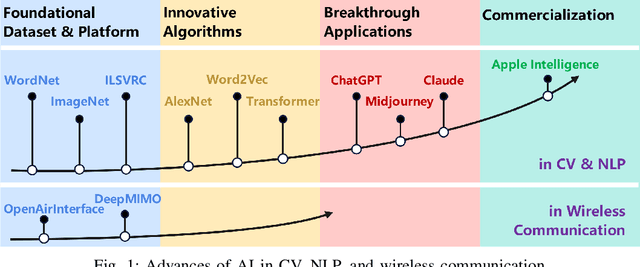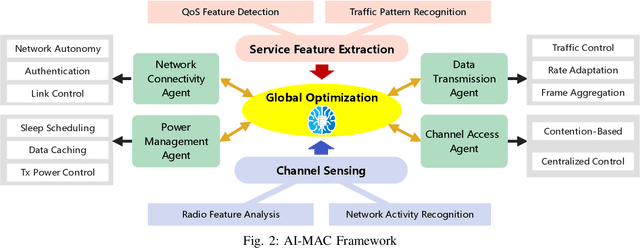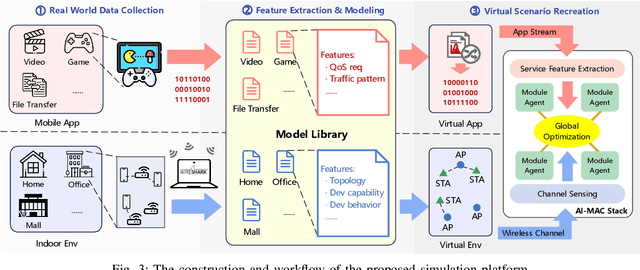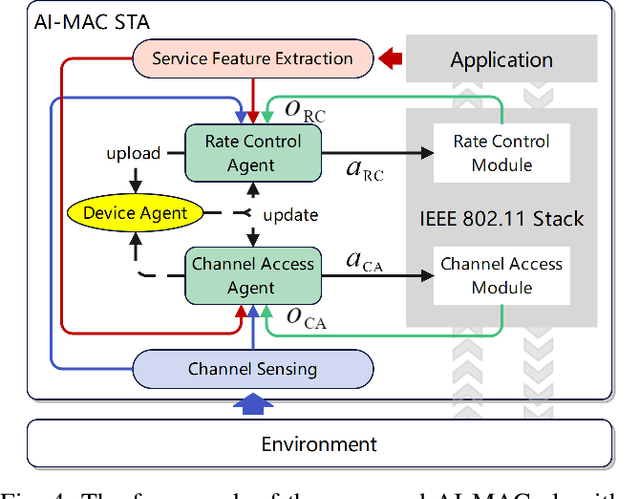Zelin Yun
GR-WiFi: A GNU Radio based WiFi Platform with Single-User and Multi-User MIMO Capability
Jan 10, 2025



Abstract:Since its first release, WiFi has been highly successful in providing wireless local area networks. The ever-evolving IEEE 802.11 standards continue to add new features to keep up with the trend of increasing numbers of mobile devices and the growth of Internet of Things (IoT) applications. Unfortunately, the lack of open-source IEEE 802.11 testbeds in the community limits the development and performance evaluation of those new features. Motivated by an existing popular open-source software-defined radio (SDR) package for single-user single-stream transmission based on the IEEE 802.11/a/g/p standard, in this paper we present GR-WiFi, an open-source package for single-user and multi-user multi-input multi-output (MIMO) transmissions based on 802.11n and 802.11ac standards. The distinct features of GR-WiFi include the support of parallel data streams to single or multiple users, and the compatible preamble processing to allow the co-existence of conventional, high-throughput (HT) and very-high-throughput (VHT) traffics. The performance of GR-WiFi is evaluated through both extensive simulation and real-world experiments.
MAC Revivo: Artificial Intelligence Paves the Way
Oct 21, 2024



Abstract:The vast adoption of Wi-Fi and/or Bluetooth capabilities in Internet of Things (IoT) devices, along with the rapid growth of deployed smart devices, has caused significant interference and congestion in the industrial, scientific, and medical (ISM) bands. Traditional Wi-Fi Medium Access Control (MAC) design faces significant challenges in managing increasingly complex wireless environments while ensuring network Quality of Service (QoS) performance. This paper explores the potential integration of advanced Artificial Intelligence (AI) methods into the design of Wi-Fi MAC protocols. We propose AI-MAC, an innovative approach that employs machine learning algorithms to dynamically adapt to changing network conditions, optimize channel access, mitigate interference, and ensure deterministic latency. By intelligently predicting and managing interference, AI-MAC aims to provide a robust solution for next generation of Wi-Fi networks, enabling seamless connectivity and enhanced QoS. Our experimental results demonstrate that AI-MAC significantly reduces both interference and latency, paving the way for more reliable and efficient wireless communications in the increasingly crowded ISM band.
 Add to Chrome
Add to Chrome Add to Firefox
Add to Firefox Add to Edge
Add to Edge